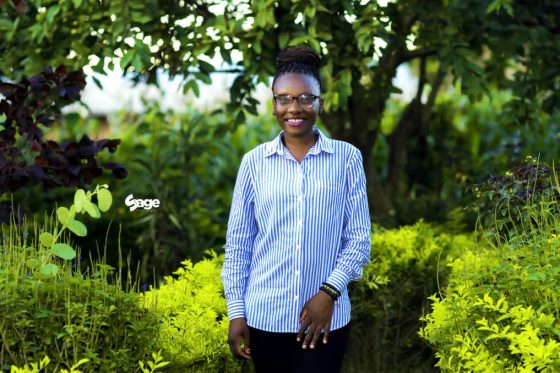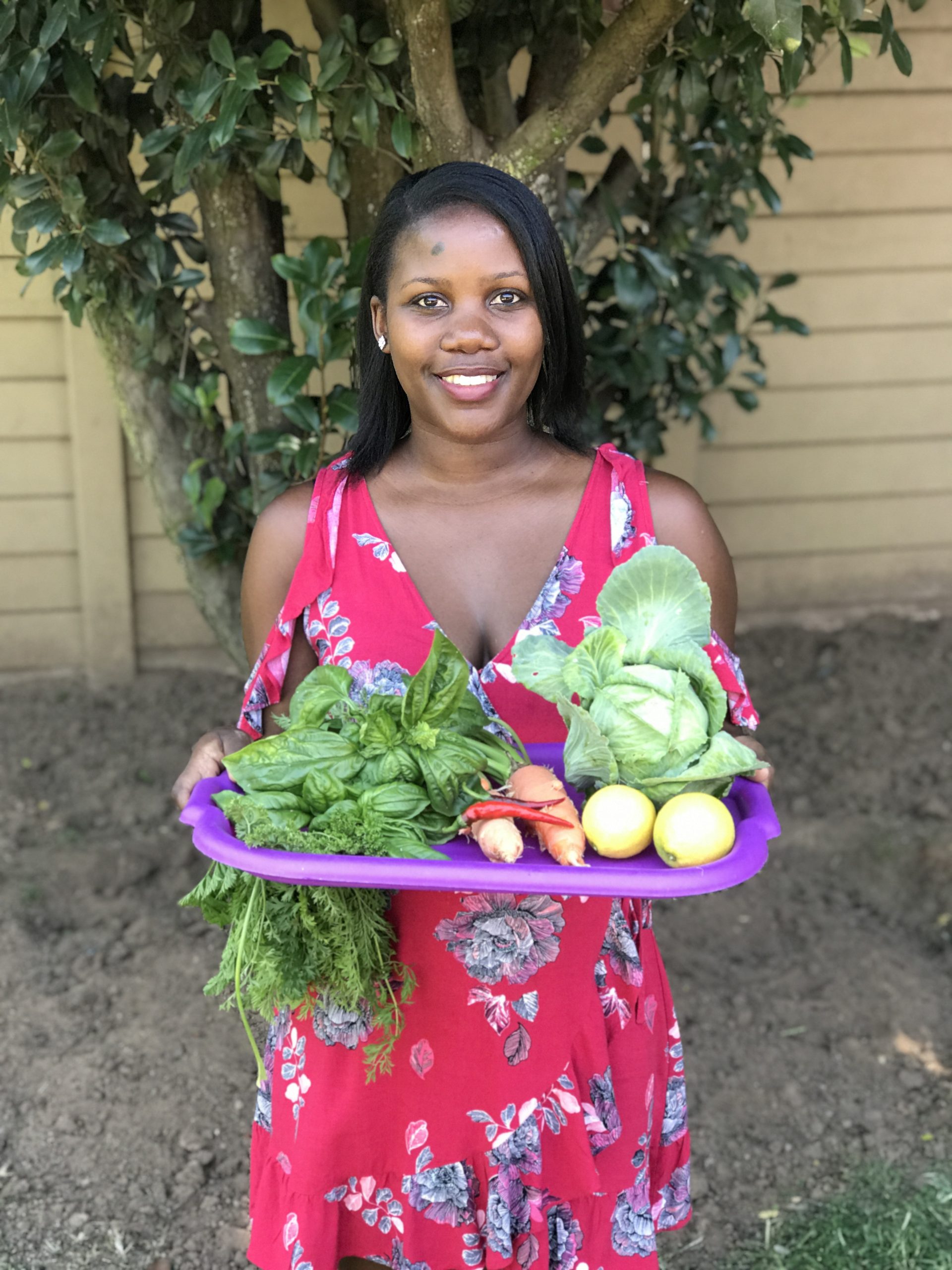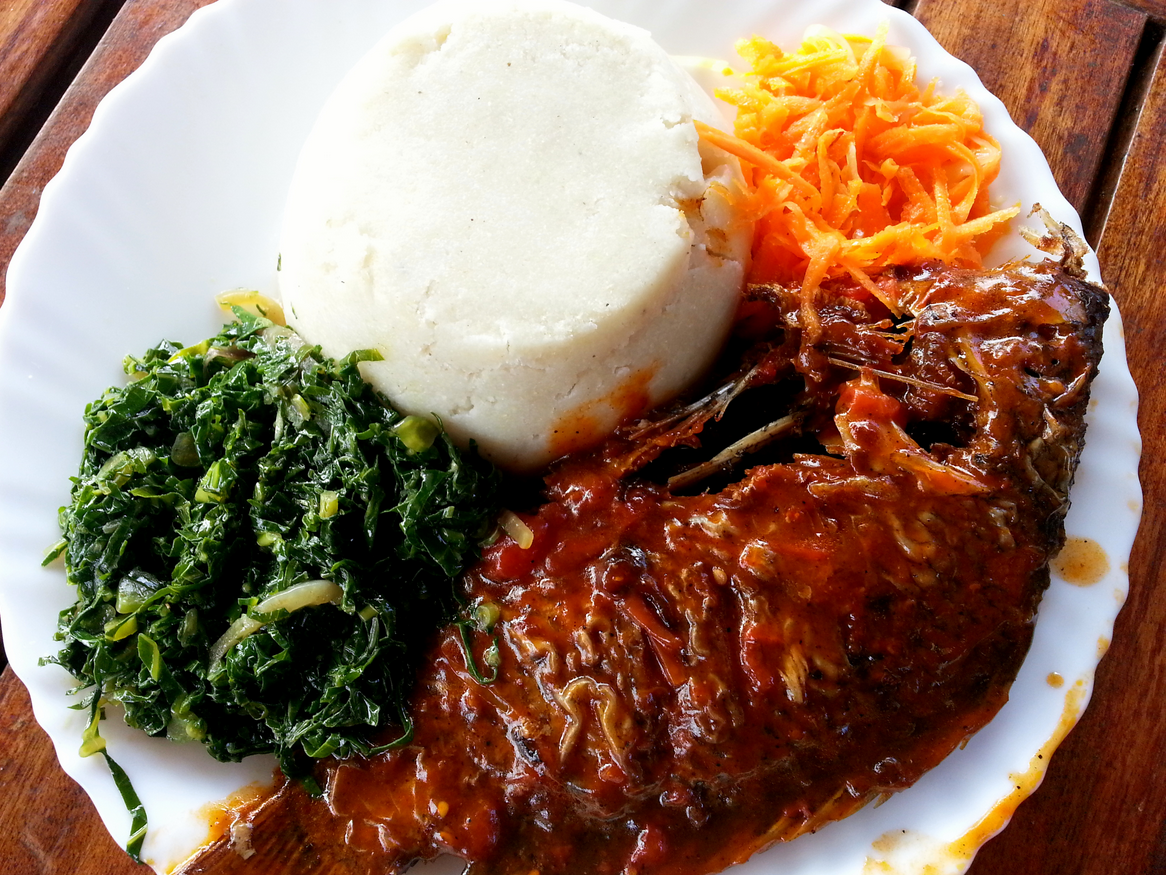Cathrine's deep connection to Malawi is so inspiring
Meet Cathrine, a young Malawian woman who was born and raised in Zimbabwe. Despite growing up far away from her ancestral land, Cathrine was always drawn to Malawi and its beautiful landscapes. As a child, she dreamt of one day visiting her parent's homeland, and when she finally did, it was love at first sight. She was captivated by the lush greenery, cultivated fields, the rolling green hills, and the friendly, welcoming people of traditional rural African villages. 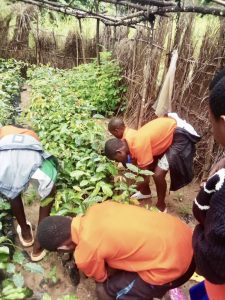
Cathrine's connection to Malawi deepened over time, even as she faced various social and financial challenges that forced her to leave her country. She never forgot the warmth and kindness of the people she had met there, and she remained committed to helping them in any way she could. 
In 2021, Cathrine finally returned to Malawi to settle in her parents' village of Tukombo, located in the Northern region where the Tonga-speaking people reside. She was eager to reconnect with her roots and to make a positive impact on her community. She reached out to the Traditional Authority (TA) of the village's land to understand the most pressing needs in the area, and she was determined to find a way to help, even though she had no resources of her own.
Cathrine's unwavering dedication to her community inspired her to seek out like-minded friends who shared her vision of creating a better Africa for present and future generations. Together, they embarked on a journey of asking for assistance, and Cathrine was humbled by the overwhelming response from her friends, who were eager to help her build her village and work towards creating a better Africa, one village at a time. Despite having limited resources, Cathrine was able to make a significant impact on the lives of those in need in her village by providing assistance and support whenever needed. 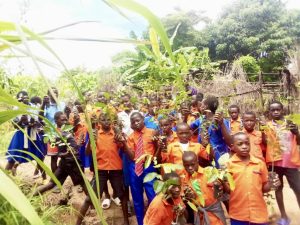
Cathrine's passion for the environment led her to get involved in a tree-planting project in her community of Tukombo. She collaborated with Chifundo from the DFFE, and together, they planted trees in a school and an elderly home. Cathrine had to seek permission from the Chief, Zilakoma - Mr Wellington, to run the project on their land, and he was eager to assist Cathrine in carrying out her vision to transform the landscapes while preserving the cultures and traditions that her ancestors had worked so hard to build. Her approach to the tree-planting project was unique and inspiring. She not only taught pupils how to plant trees but also explained why it was important and how to care for them. She encouraged each student to plant trees with a purpose and to name each tree they planted so they could nurture and protect it as a living treasure. Cathrine's dedication to planting trees and helping those in need is truly admirable. Her efforts have given hope for the future of our planet and the natural world. Her story is a testament to the fact that one person can make a significant difference in their community with determination and a clear vision.
A HOUSE IS NOT A HOME WITHOUT A GARDEN
My name is Noma, and I am a self-made home gardener. My goal is to inspire as many people as possible to start their own home gardens so that they can eat and live healthier lives.
When I first started gardening, I never imagined how big of a role it would play in my life. Gardening positively changed my physical, mental, and emotional well-being. Before embarking on my gardening journey, I used to worship junk food! Meals containing greasy, spicy and filling foods were my go-to meals. Soon enough, Irritable bowel syndrome (IBS) caught up with me when the doctor asked – do you eat vegetables?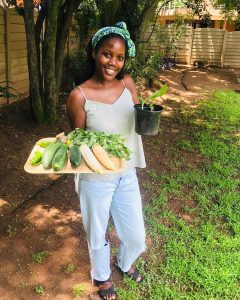
The truth was, I only ate vegetables when I had to. In fact, even if I bought vegetables, they would stay in the fridge until they would go bad, which gave me the perfect excuse to throw them away. At this point, I knew something had to change, and I knew that I had to make that change.
And so, my gardening journey began five years ago when hubby and I moved into our first house and decided that a house is not a home without a garden. This way of thinking was also the best way for me to eat more veggies because once you’ve laboured to grow your own veggies, it just hurts too much to see them go to waste.
The first two years of gardening were a joke because we both grew up with parents who loved gardening. However, we had zero gardening experience and didn’t know where to start. But we had to start somewhere. So, we sliced a store-bought tomato and put it in the ground, along with a few sweet potatoes. The tomatoes sprouted up surprisingly fast, and soon enough, we harvested a handful of happiness. But the sweet potatoes, on the other hand, didn’t give us much when we pulled out the plants. So then, hubby and I decided to put gardening on hold to focus on having our baby boys.
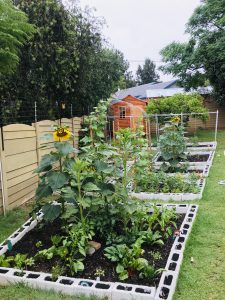 In 2019 I was done with the babies and ready to go back into gardening. But because we neglected our garden for so long, it was covered in grass. We then decided to dig it all out and start the garden all over again. As soon as we started digging, we were greeted with a pleasant surprise of sweet potatoes! Lots and lots of them! For me, this was an undeniable sign that I was meant to use this space for gardening. And that’s how @GardentoPot was born. First on Instagram, and now, we are blowing up on TikTok. As I’m learning to grow, I’m also learning to cook healthier, and that’s the type of content I share on my social media platforms. My boys are also learning to love the garden, from sowing seeds to harvesting and eating carrots.
In 2019 I was done with the babies and ready to go back into gardening. But because we neglected our garden for so long, it was covered in grass. We then decided to dig it all out and start the garden all over again. As soon as we started digging, we were greeted with a pleasant surprise of sweet potatoes! Lots and lots of them! For me, this was an undeniable sign that I was meant to use this space for gardening. And that’s how @GardentoPot was born. First on Instagram, and now, we are blowing up on TikTok. As I’m learning to grow, I’m also learning to cook healthier, and that’s the type of content I share on my social media platforms. My boys are also learning to love the garden, from sowing seeds to harvesting and eating carrots. 
I am truly humbled and honoured by how everyone has received my content. Now I see that there is a real need for people to be able to grow their own nutritious food with no harmful chemicals. Today my garden is my therapy, it teaches me about how life & nature work together. My garden is also my purpose, it helps me inspire others to garden and to take control of their nutrition.
Mpho Mogodiri is Celebrating our Indigenous Heritage
We really need to reconnect with our roots to nature and listen to the elders around the world. I call them living libraries because they actually know most of the things that we don’t know. They have this knowledge, but they don’t know who to share this knowledge with. It’s because we are not asking them about these things. It’s something that I’m trying to spark with my business. To say, ask your grandmother about this, ask your grandfather about this, ask your elder about this and let there be a bit of information sharing. My grandmother would share her stories around fruits. For example, the wild sour plum. Those are the things she would talk about. I feel that knowledge like hers should be preserved somehow. 
People don’t go into the wild as much as they used to. There’s a lot of activities to do now. There’s a TV in every home. There’s PlayStations, there’s Twitter, Facebook and so on. For us, when we wanted to play, we would go foraging and people are no longer interested in foraging. And if people are not interested in something, it loses its value.
I got introduced to foraging by my grandmother. I grew up in the Northwest, in a village called Seolong. We would go foraging with my grandmother and also with friends. It was actually fun to do it. I think it was a great, formative period. It’s a part of who I am. It’s a part of my identity and culture. I believe right now we are losing this knowledge which forms a great part of who we are.
The impact that starting my business had on me is that I really had to connect with my childhood again. Not only that but it’s also taught me that challenges in life are seasonal like the items we would forage. I appreciate nature more. I get to impact other people’s lives because when I go foraging, now, I go with a group of young people. They teach me about these fruits because some of them have been doing this their whole lives. Now they are paid for that knowledge and skill and they get to be paid through me. I get to put food on somebody’s table. It has impacted me that I’m doing good. I’m sharing my gift with other people. I’ve learnt to really listen to the ingredients and just go with the flow. It has shown me a different Mpho. 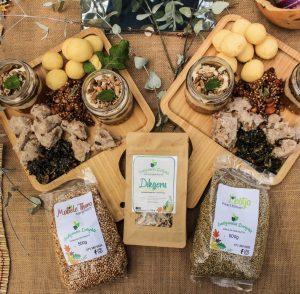
At Indigenous Delights, we produce luxury food, such as jams and chutneys, made out of indigenous, raw products. We exclusively source our raw material from women and youth in the villages in the Limpopo province. We do this to ensure that we provide a way of earning income for women and youth, and also to ensure that the materials we get are indigenous to that area and are collected sustainably.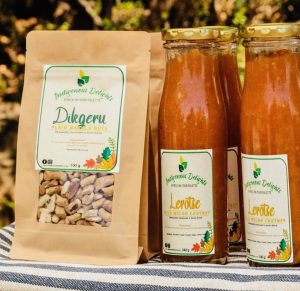
I wanted to make something that I grew up loving, indigenous delights, into modern food. There’s a certain stigma that comes with some indigenous fruits that I grew up eating. I ate that a lot when I was young because we had nothing else to eat. So, some of the foods are seen as poverty foods. We’re trying to break through that stigma.
Evolving to me means growth. It means pushing boundaries. Knowing that fear is there, but saying to the fear, 'I acknowledge you, fear, but I'm not gonna let you paralyze me'. Evolving means chasing your dreams the only way you know how. Evolving is also growth in terms of knowing yourself and making things happen for yourself and for those that are around you. It’s about opening the door for those who come after you.
Bite Size: Foods to have on hand so you never run out of things to cook
We’ve all been there. It’s 8pm, you’ve had a long day, you look in your fridge and cupboards or pantry and realize you have nothing to eat; or at least nothing that you can prepare quickly. Which is why stocking your cupboards and fridge with these essentials will ensure you can always throw together a meal in 30 minutes or less, no matter the time or day;
Eggs: There is no end to what you can create with eggs. From east scrambled eggs on toast or a filling omelette. Which is why having eggs on hand is always a must.
Bread: Like eggs, the diversity of bread lies in the different ways you can enjoy it. From toasted sandwiches to simple meal fillers, some good bread can always come in handy day or night.
Canned tomato: As a new mom, I find that most nights it feels impossible to think of things to cook. Which is why canned tomatoes have saved my life time and time again. I like to use the best quality canned tomatoes I can find as these usually mean you don’t have to worry about adding too much seasoning. And I serve them with eggs as a shakshuka for brunch, or tossed into pasta with what ever vegetables I find in the fridge.
Pasta: Like the previous ingredients there is no shortage of what you can do with pasta. Personally I like to cook it in large batches when I have time and munch on it with some vegetables as a pasta salad, or warm with a healthy helping of canned tomatoes or when the mood strikes to make a delicious carbonara with eggs, Parmesan cheese and bacon; yum.
Bacon/chicken breast: Having some kind of protein is always a must. At She Evolves we like to keep chicken breasts and bacon in the freezer at all times for those late night meals. Wether you like yours served with bread, pasta or in a salad, a little protein can go a long way.
Canned fish: This one might seem off but hear me out. Not only is canned fish versatile, it is also a great way to get in those omega 3s and 6s without having to think too much about out. Personally we like having canned tuna for tuna sandwiches or to throw into salads.

